Mental Health Nursing: Reflective Blog Responses with APA Referencing
VerifiedAdded on 2023/06/15
|8
|904
|406
Discussion Board Post
AI Summary
This assignment comprises responses to three blog posts related to mental health nursing, particularly within a clinical setting. The responses address challenges such as managing caseloads, paperwork, and the mental well-being of nurses. Each response incorporates insights from recent articles, cited using APA style, to provide evidence-based perspectives and suggestions for improvement. The first response focuses on balancing patient care with administrative tasks, referencing the importance of maintaining records for legal and ethical reasons. The second addresses the mental stress experienced by nurses, advocating for self-care and prioritizing personal well-being. The third highlights the importance of time management and self-relaxation techniques to reduce stress and compassionate fatigue, suggesting the development of mental health in-service programs to improve the perspectives of nursing professionals and patients. The assignment demonstrates an understanding of the challenges faced by mental health nurses and offers practical, evidence-based solutions.
1 out of 8
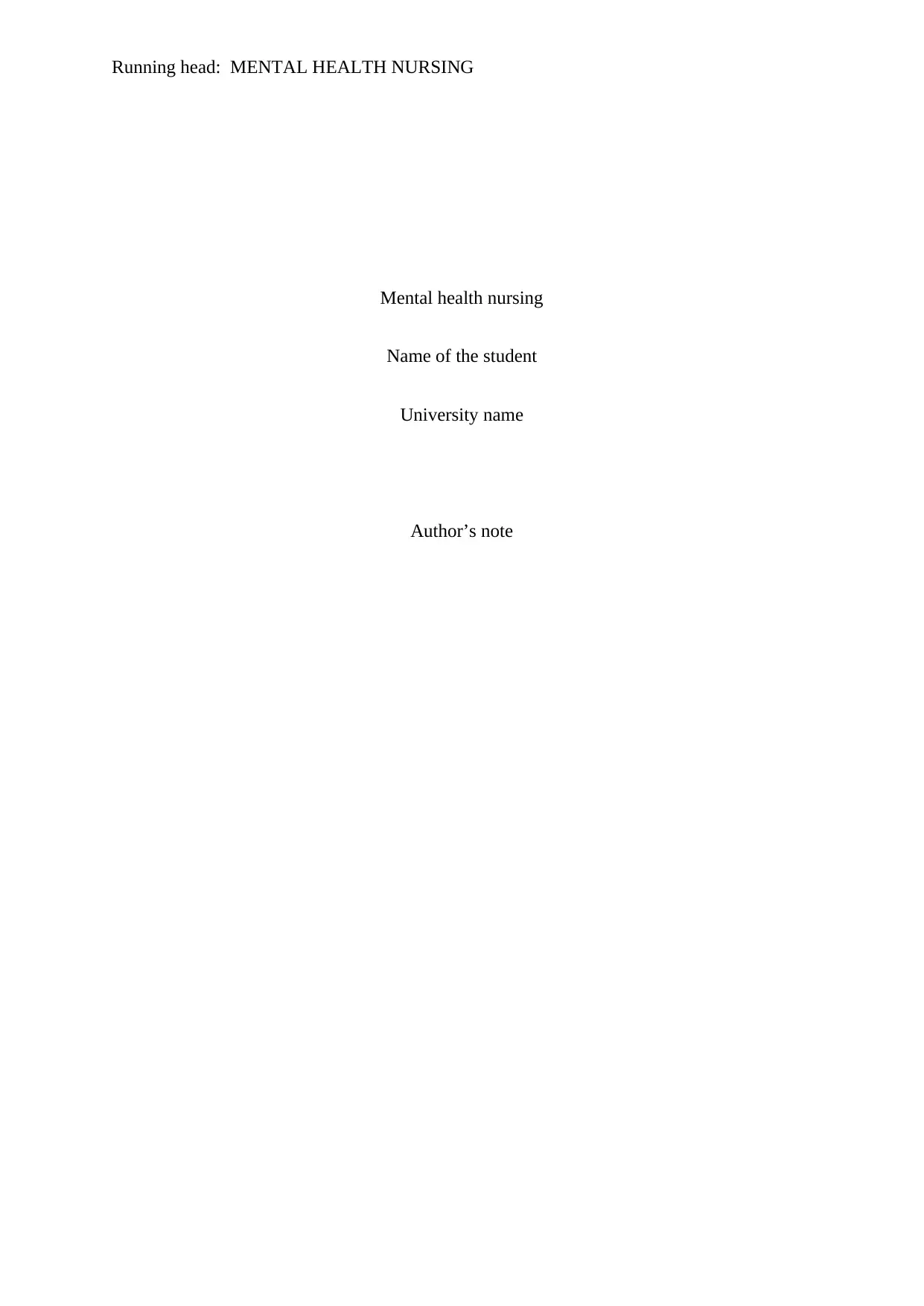
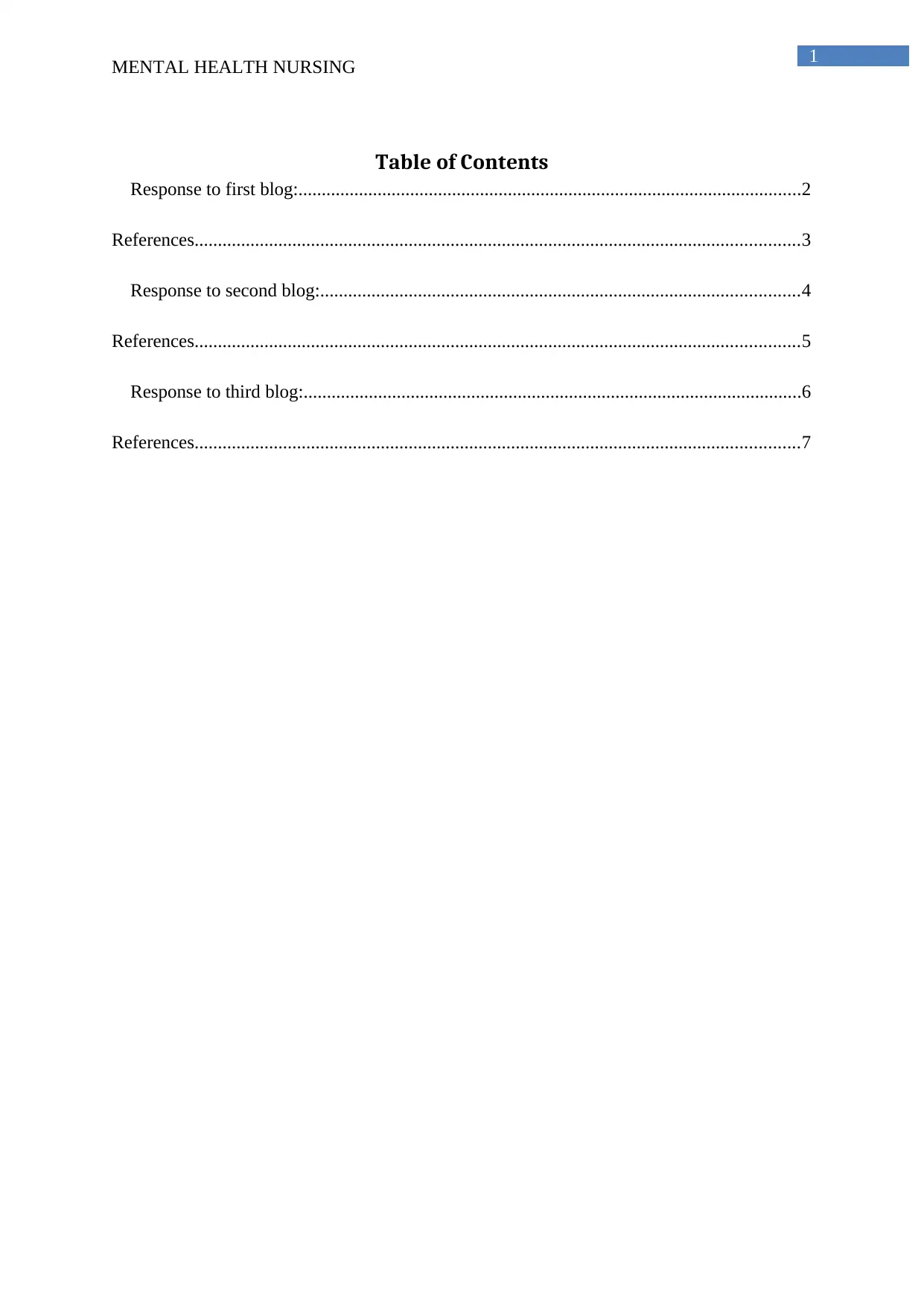
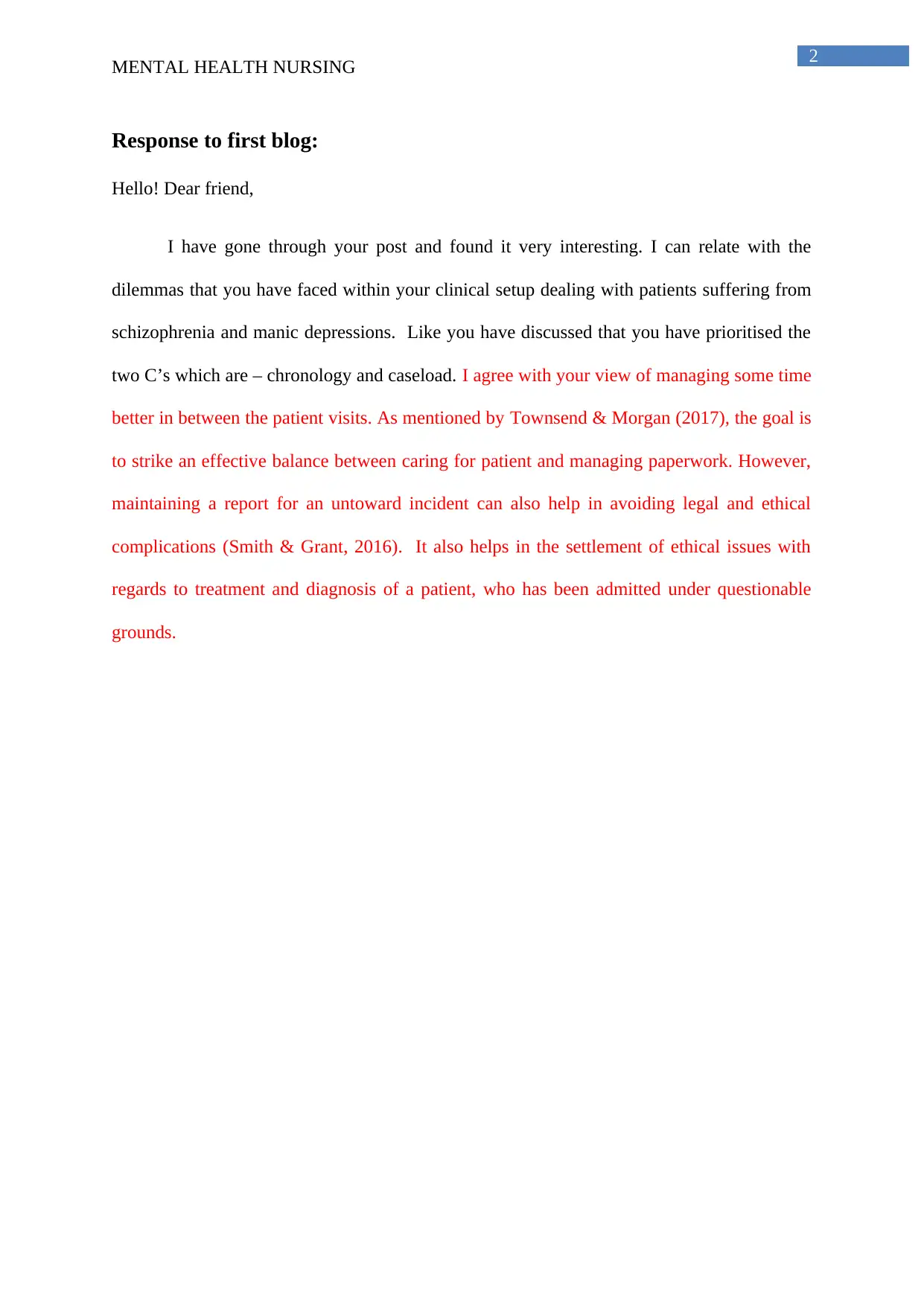

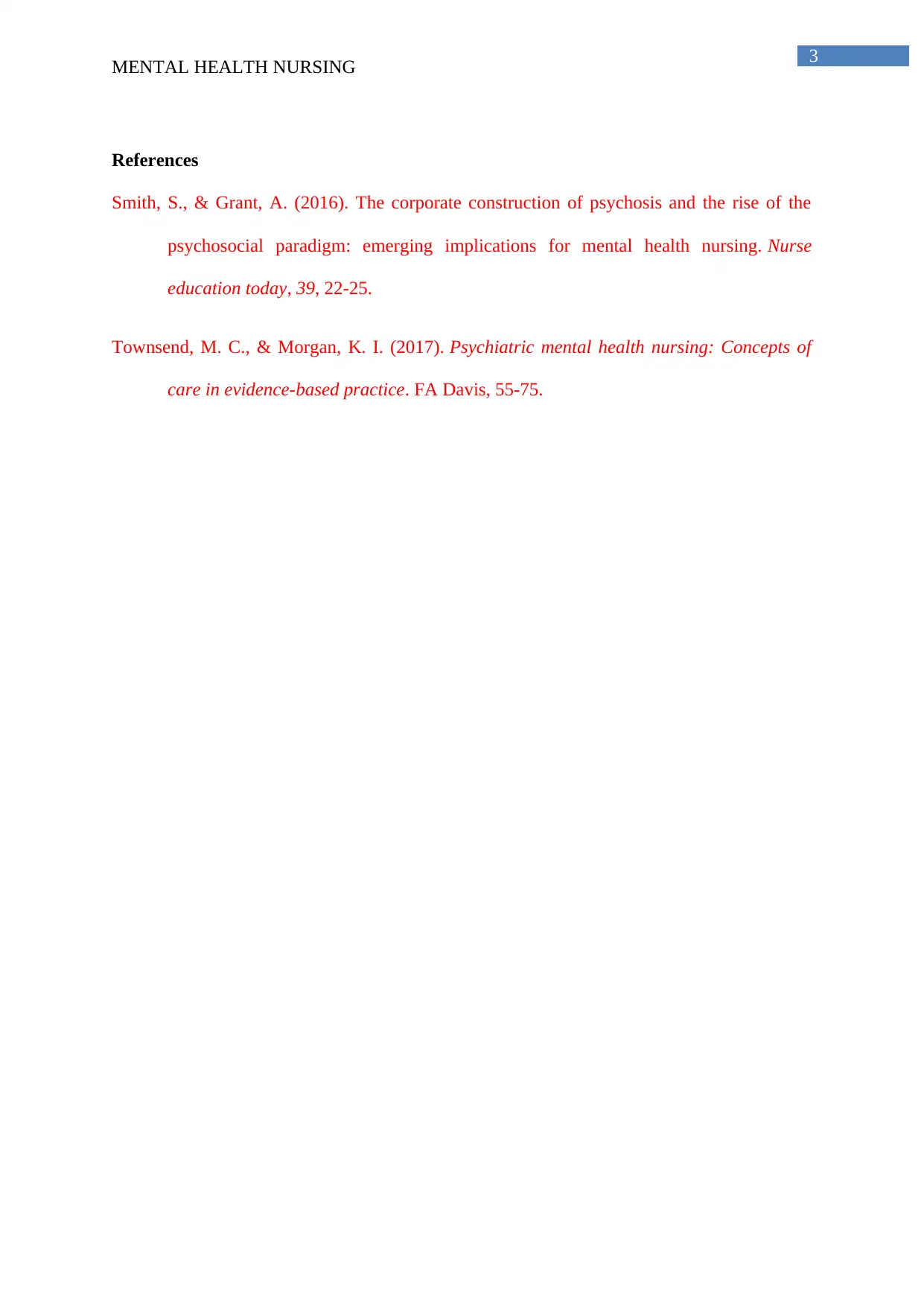
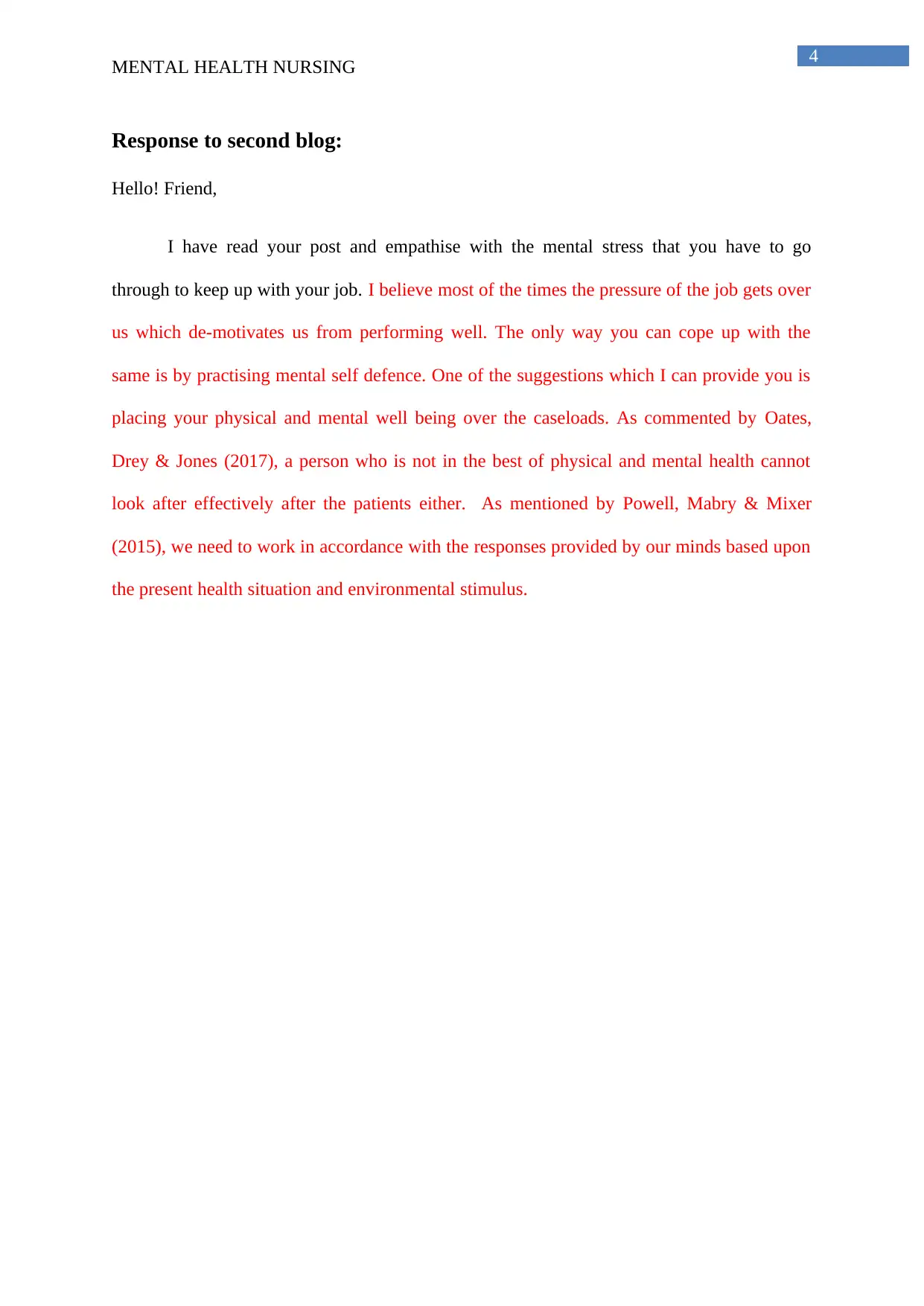
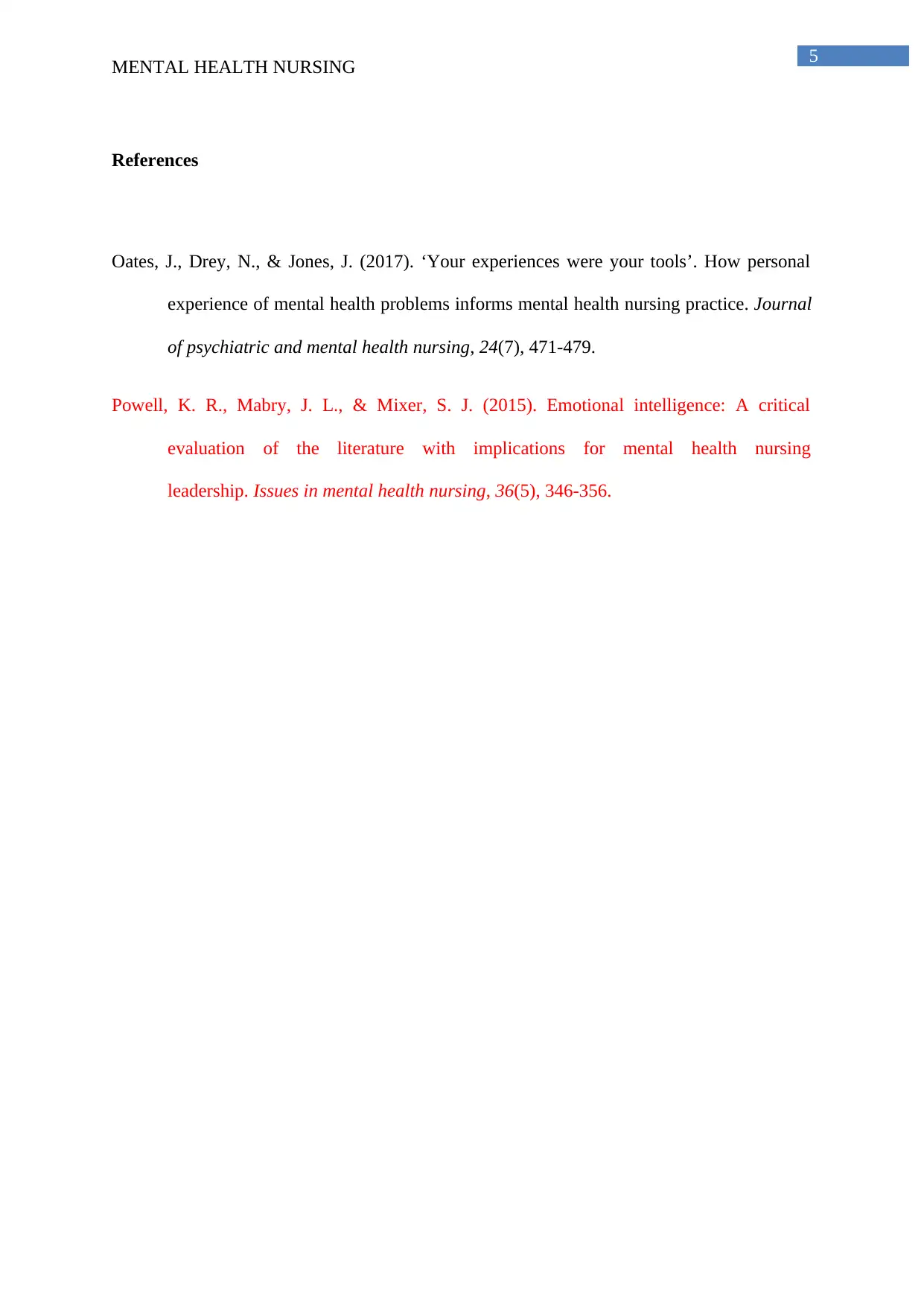
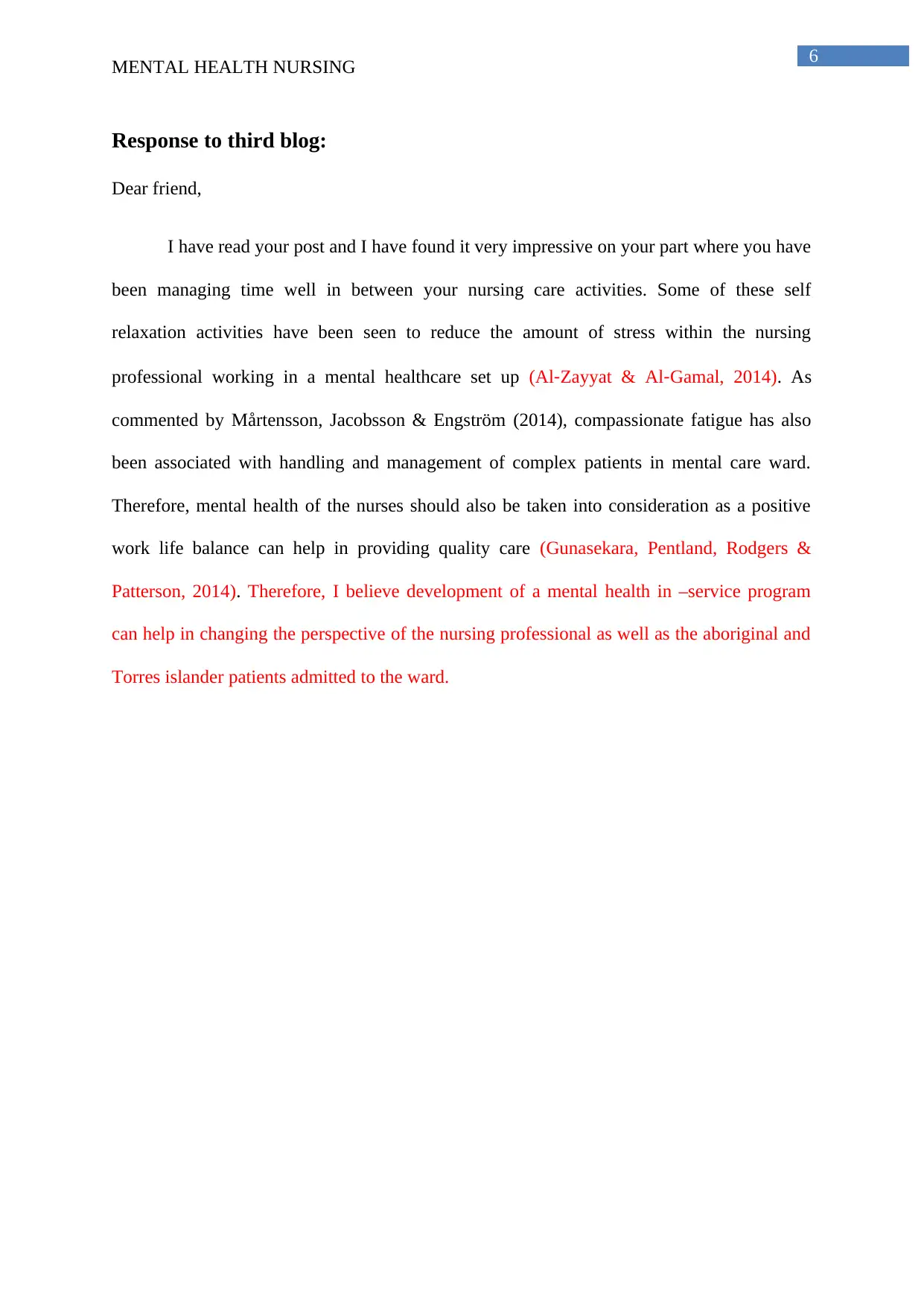
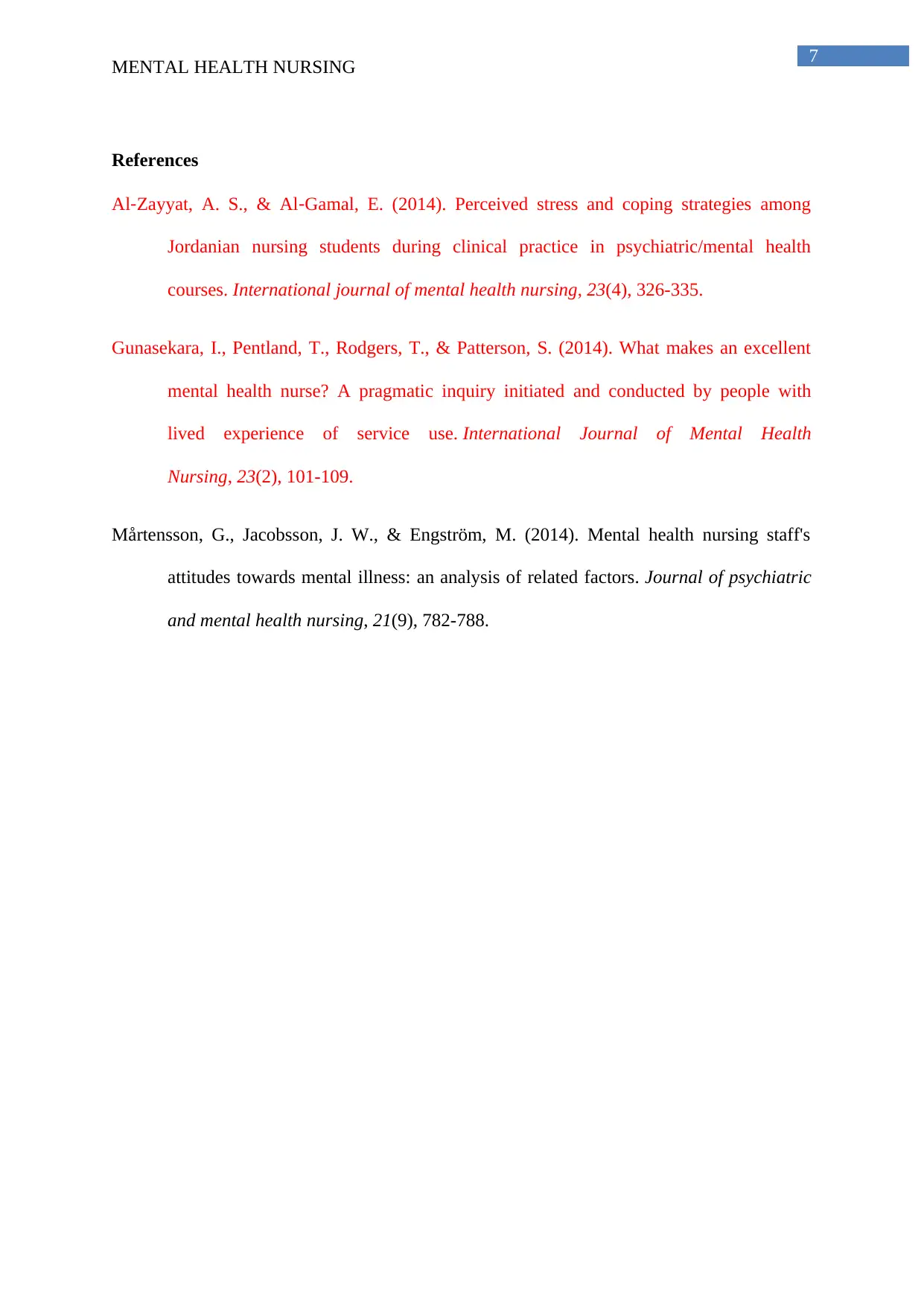

![[object Object]](/_next/static/media/star-bottom.7253800d.svg)